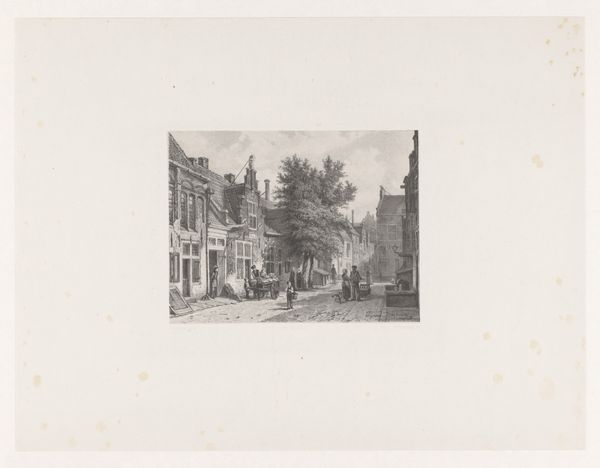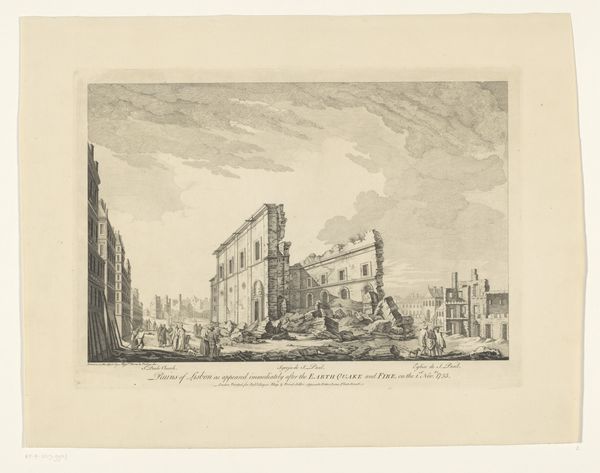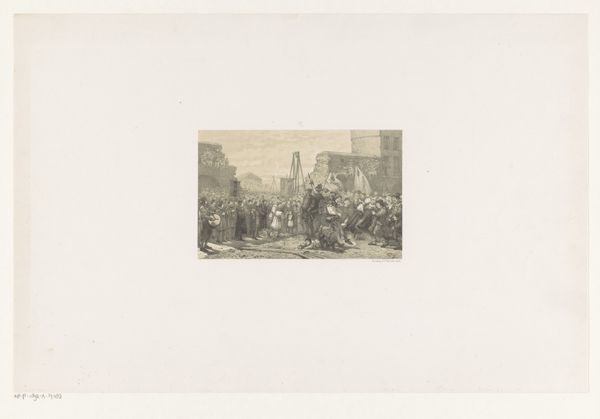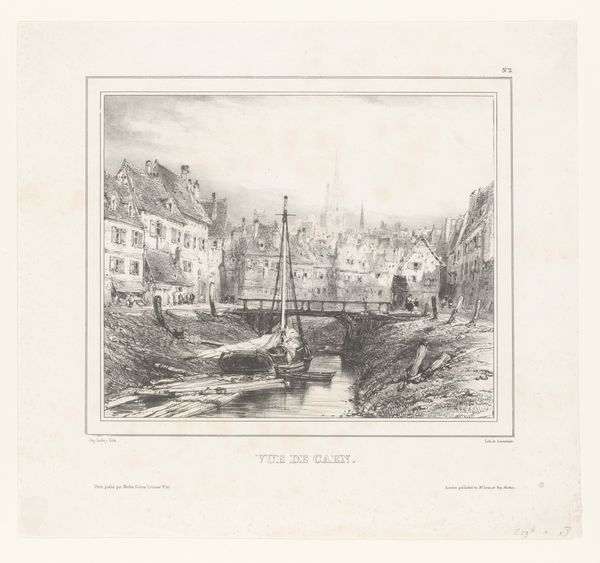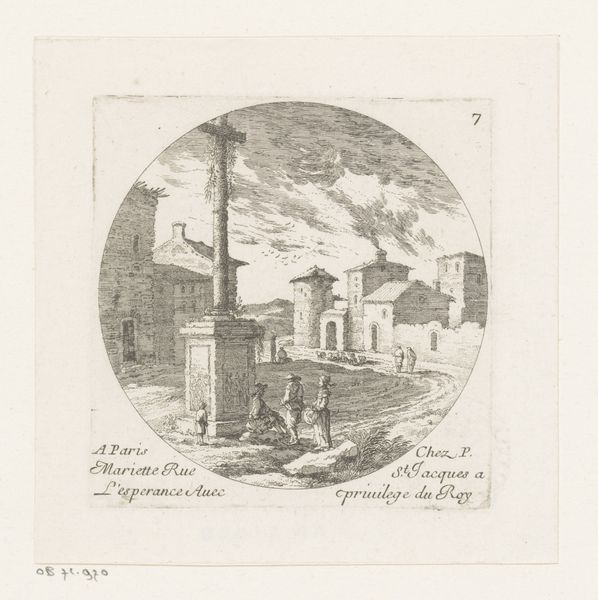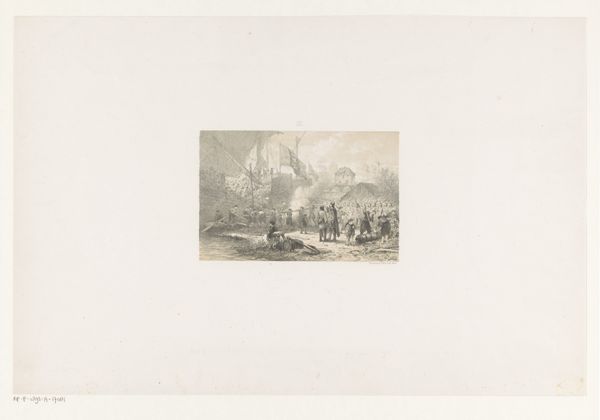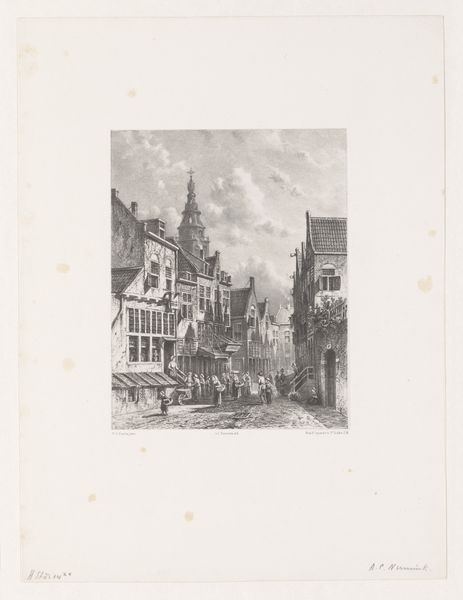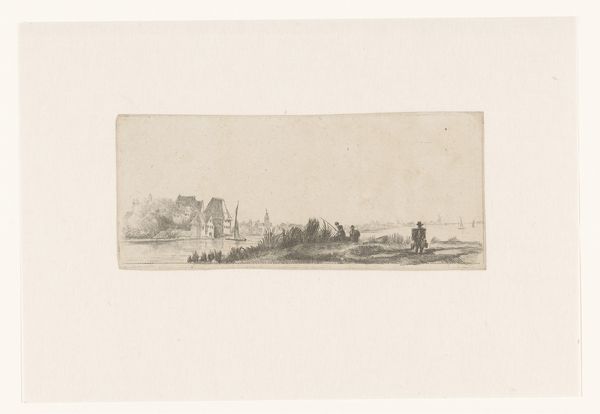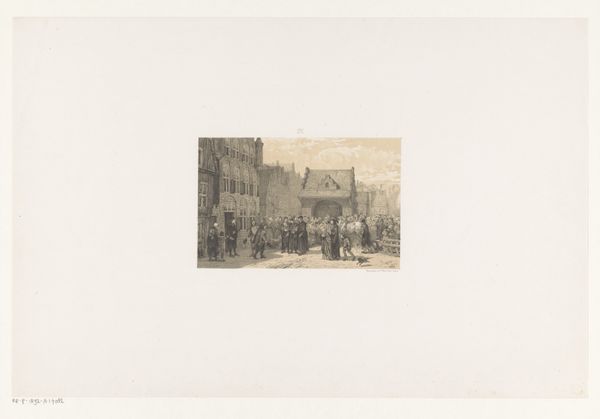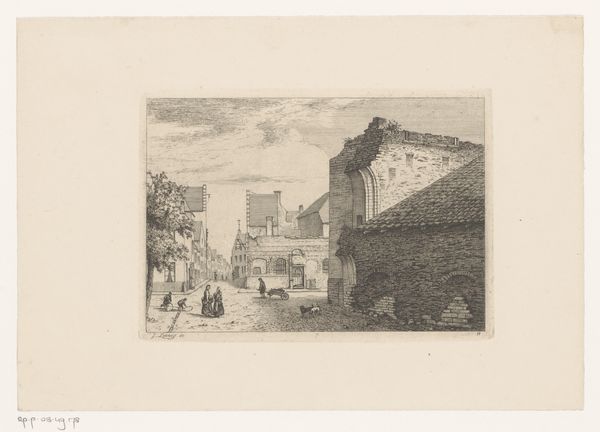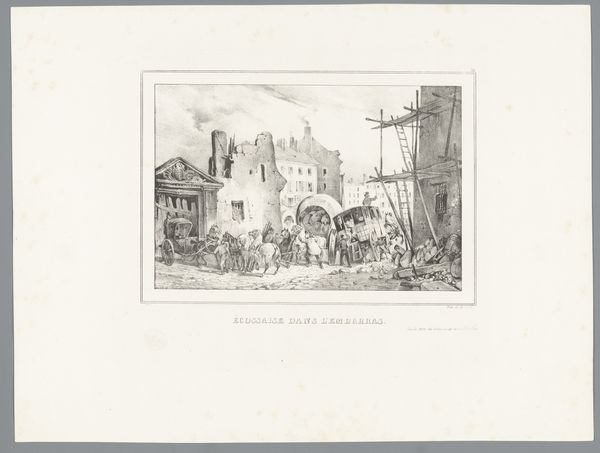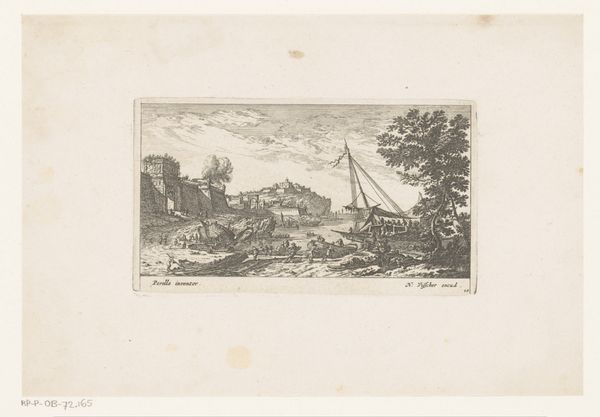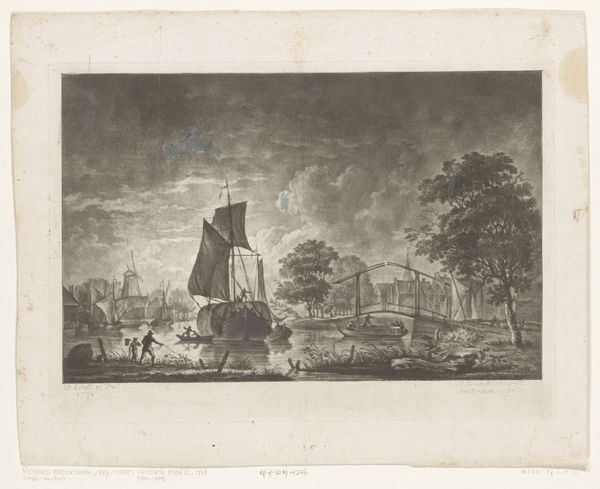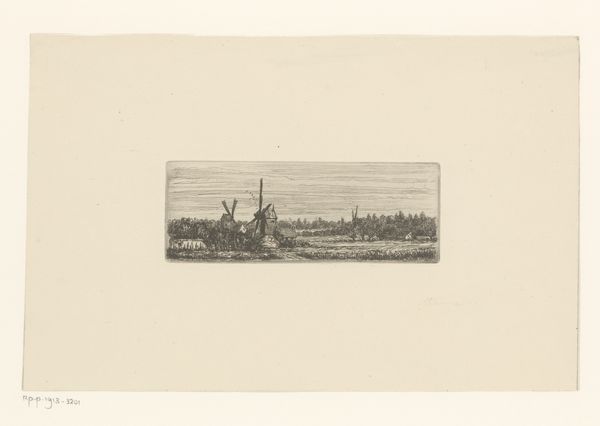
print, etching, engraving
#
pencil drawn
#
dutch-golden-age
# print
#
etching
#
old engraving style
#
pencil drawing
#
cityscape
#
genre-painting
#
graphite
#
engraving
Dimensions: height 194 mm, width 244 mm
Copyright: Rijks Museum: Open Domain
Editor: This is "Schuttersdoelen te Amsterdam, ca 1650," made around 1870, and attributed to Christiaan Lodewijk van Kesteren. It’s an engraving, a detailed cityscape. The precision is striking! How do you approach a work like this? Curator: Immediately, my interest is drawn to the labor and materials involved. An engraving of this complexity suggests a significant investment of time and skill. Consider the engraver meticulously transferring the design onto the metal plate, a process demanding intense concentration. How does the means of production impact our understanding of the depicted subject: a civic guard house in Amsterdam? Editor: Well, it makes me think about the relationship between art and craft at the time. It seems to bridge those categories. Curator: Precisely! And what about the function of prints and engravings like this in 19th-century Dutch society? This work reproduces an idealized image of 17th-century Amsterdam and served a market hungry for nostalgia and representations of national pride. Who had access to such prints? Editor: Likely the middle class, those with disposable income. So, it's about consumption and the desire for historical connection? Curator: Exactly. This image circulated through society, shaping perceptions of history. Van Kesteren's choices regarding composition, style, and detail directly influenced this consumption. Consider also that while the original is said to be of 1650, this was produced roughly 200 years later. It really shows how far we've come. Editor: I see how the printmaking process itself and who it was made for gives a really different reading of the work. I wouldn’t have thought about it that way initially! Curator: Paying attention to the social and economic context enriches our experience, right? There's always more to discover in the making and circulation.
Comments
No comments
Be the first to comment and join the conversation on the ultimate creative platform.
